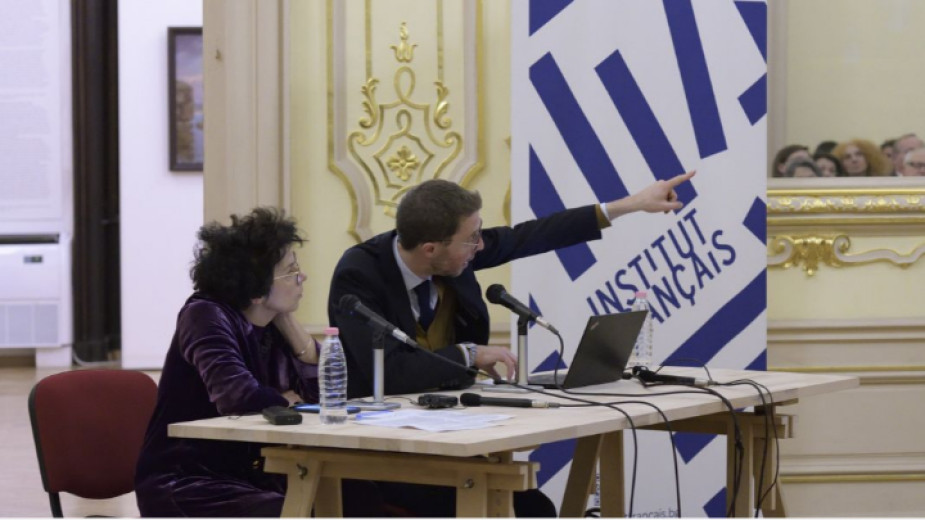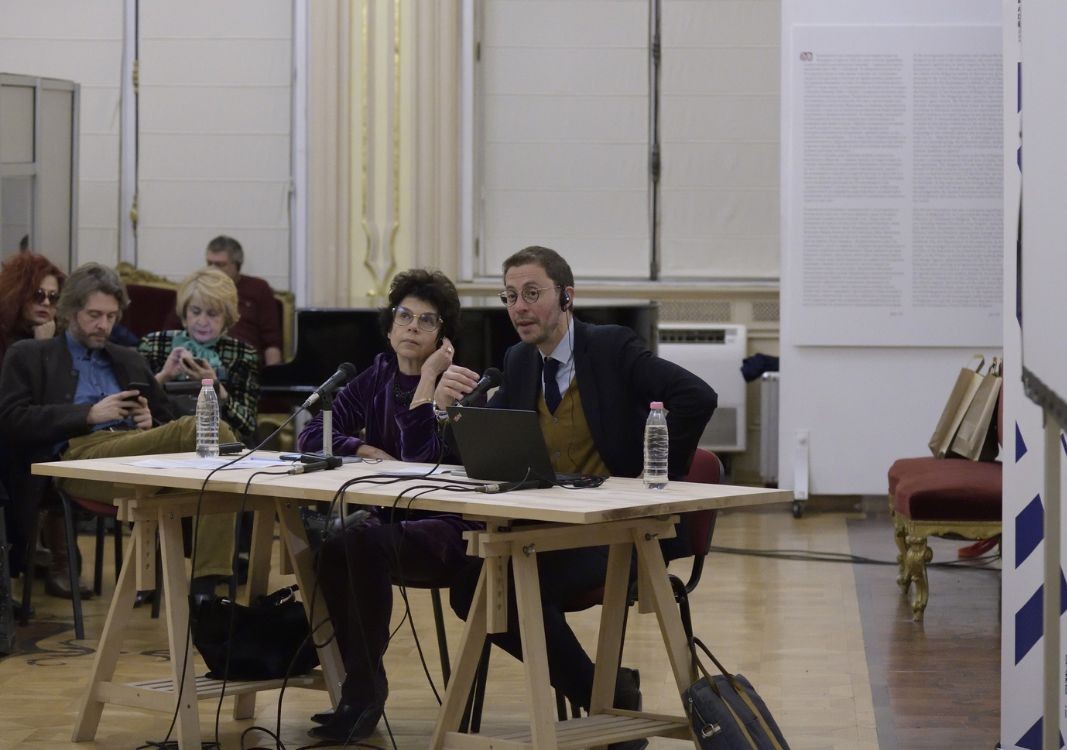 6
6
Thirty years after Bulgaria joined the International Organization of La Francophonie, the director of the French centre for modern art, the Centre Pompidou Xavier Rey paid a visit to this country at the invitation of the National Art Gallery in Sofia. There, in the aristocratic setting of the Ballroom, during a meeting with art critic Yara Bubnova and the public, he told the story of the museum, speaking of its organic bond with the surroundings, how it attracts and mixes its different audiences, and possible cooperation with Bulgaria. His lecture was an element of the exhibition at the National Gallery “Georges Papazoff – the Illuminator”, an artist connected with surrealism and avant-gardism during the first half of the 20th century, whose art led him from Yambol in Bulgaria to Prague, Vienna, Berlin and ultimately - to Paris.

Founded in 1977, the Centre Pompidou is more than a gallery, it also houses a public library, an industrial design centre, a centre for music and acoustic research – an innovative idea going back to the 1970s.
“Museums have changed a great deal since the Centre Pompidou opened, and in a way it has given an impetus for transforming museums from a place of knowledge into a place of beauty, of education, of public relations, of life and sharing,” Xavier Rey says.
The function of the museum is embodied in its building – an architectural utopia, with no inside and outside, the space in front of the museum being its natural extension. Unlike classical museums – impressive, monumental palaces, which people enter as they would a building of worship, the Centre Pompidou is open to all people, welcoming them into the fold of culture and knowledge.

“The building was planned to resemble the Gothic cathedrals of the Middle Ages,” the Centre Pompidou director explains. “Why? Because it was designed on the basis of architectural rationalism. During the Middle Ages the supporting structure of a cathedral had to be visible. In the 20th century life in the building is what is visible: the water, the air, the electricity, the people inside.”
The museum which has branches in Brussels, Malaga, Shanghai and Jersey City, is “more than a showcase for French art, it is a place for a dialogue with art created in France – and naturally it is not all art by people who are themselves French. We are standing next to the superb retrospective exhibition of Georges Papazoff, who is one example of the artistes who have spent part of their lives in France and who have become part of the European, even world artistic community.” That is what is meant by “national”.
Can we expect a new Centre Pompidou branch to open in Bulgaria or in Eastern Europe? Regrettably, no. The museum, where works by just two Bulgarian artists have so far been displayed – Nedko Solakov and Krassimir Terziev – is hardly likely to host the retrospective of Georges Papazoff because of its upcoming overhaul, as of 2025. Its programme up until then is booked up.
“However, the artists who have embarked on the adventure of surrealism in Bulgaria and in Europe, will be represented in the exhibition dedicated to surrealism which we have been preparing for two years to mark the centennial anniversary of André Breton’s Manifesto of Surrealism in 2024,” the director of the Centre Pompidou Xavier Rey said during his visit to Sofia.
Photos: Facebook / National Gallery, Centre Pompidou, Maria Stoeva
The first EU Songbook has been released, featuring six songs from each of the 27 EU member countries and Ode to Joy, the anthem of the European Union, reports BTA. The Songbook, a non-profit Danish initiative, has no financial ties to the EU,..
Days of Bulgarian culture will be organized in Madrid between November 9 and December 31, 2024, BTA reported, citing Latinka Hinkova, president of the Association of Bulgarians and Artists "TREBOL" and head of two Bulgarian Sunday schools in Torrejon de..
The national awakeners of Bulgaria are the individuals for whom we feel not only gratitude and admiration, but also perceive as some of the most significant figures in our history, because they awaken our sense of national togetherness. However, what is..
“A story that is worthy of a movie” is what we often say when we hear about some incredible event or an interesting story. It is cinema..
The fourth national Biennial of Illustrations opens today in the triangular tower of Serdica, part of the Regional Museum of History in Sofia. As..

+359 2 9336 661
